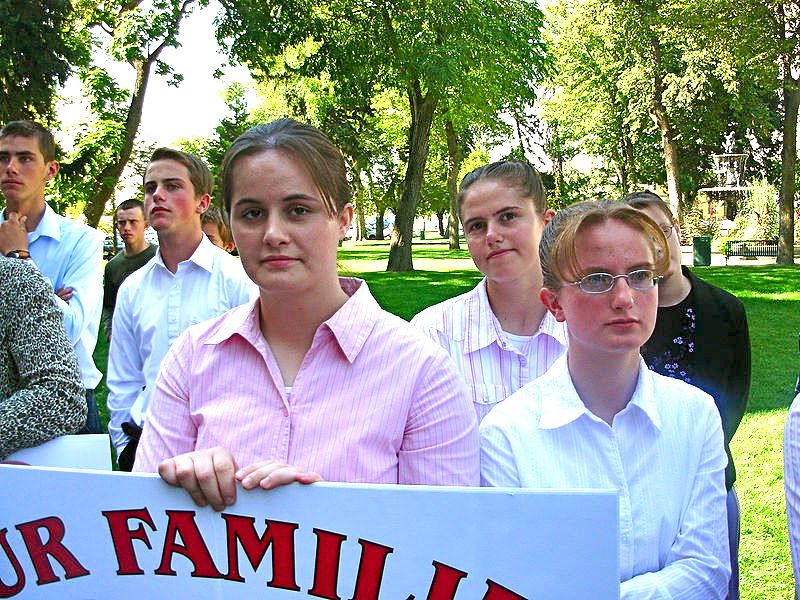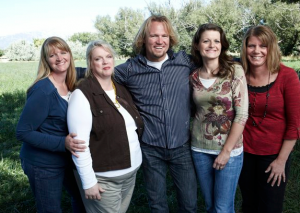 SALT LAKE CITY, Utah — The Utah Senate voted unanimously on Tuesday in favor of a bill that would no longer classify bigamy — being married to more than one person as part of a polygamous relationship — as a felony, but a minor infraction akin to a traffic ticket.
SALT LAKE CITY, Utah — The Utah Senate voted unanimously on Tuesday in favor of a bill that would no longer classify bigamy — being married to more than one person as part of a polygamous relationship — as a felony, but a minor infraction akin to a traffic ticket.
Senate Bill 102 was introduced by Republican Sen. Deidre Henderson of Spanish Fork, and likewise cleared a Senate panel with a unanimous vote last week — obtaining approval from both Republicans and Democrats alike.
“An individual is guilty of bigamy if the individual purports to marry another individual, and knows or reasonably should know that one or both of the individuals … are legally married to another individual,” the bill reads. “An individual who violates [this section] is guilty of an infraction.”
The current law states that “[a] person is guilty of bigamy when, knowing the person has a husband or wife, or knowing the other person has a husband or wife, the person purports to marry and cohabitates with the other person.”
For decades, bigamy has been classified as a third-degree felony in Utah, and penalties could include up to five years in prison. According to UPI, under the proposed legislation, the maximum penalty would be a $250 fine and community service. Bigamy would remain a third-degree felony if a person uses fraud, coercion or threat to force another person into a polygamous relationship.
Some view the measure as essentially decriminalizing polygamy for consenting adults, but Henderson said that is not her intent. She rather states that she sees existing law as a creating a “full-blown human rights crisis” in that it enables polygamous abusers to get away with crimes, since the women affected in abusive situations do not come forward out of fear that they will be treated as felons and their households dissolved.
“Branding all polygamists as felons obstructs integration into society and limits access to education, healthcare, and justice; it also allows abuse to escalate unchecked,” Henderson wrote earlier this month in an op-ed for the Salt Lake Tribune.
“The history of raids and family separations, combined with the blanket ban on an entire lifestyle, leads to the fear that an investigation might break up an entire family, removing the children and incarcerating the parents,” she said. “That’s a high hurdle, and so abuse is kept quiet.”
“Lowering the criminal penalty for otherwise law-abiding polygamists is how we begin introducing light into polygamist communities in Utah,” Henderon opined, stressing that she was not seeking for the state to legalize polygamy or make way for citizens to obtain multiple marriage licenses.
“In short, my proposal [means]: Don’t prosecute otherwise law-abiding polygamists, but instead focus on actual crimes like fraud and abuse,” she wrote. “We want to encourage more reporting and easier investigation of abuse, and the way to do that, after consulting with prosecutors and polygamists alike, is to reduce the criminal penalty so the high barrier to community integration is lowered.”

As previously reported, Kody Brown of the TLC reality show Sister Wives, along with his four “wives,” Meri, Janelle, Christine and Robyn, filed suit in 2011 to challenge parts of a Utah polygamous cohabitation law that they claimed violated their privacy rights.
The five had been under investigation by state officials for violating the statute, and moved to Nevada to escape punishment. Brown is married to one of the women, and considers his relationship with the other three women as being “spiritual unions.” He has fathered 17 children with his four lovers.
Brown, a member of the Apostolic United Brethren Church, a fundamentalist Mormon sect, contended that such a prohibition violates his freedom of religion.
In December 2013, Judge Clark Waddoups, nominated to the bench by then-president George W. Bush, sided with Brown in determining that Utah’s prohibition on polygamist cohabitation violated the First and Fourteenth Amendments, and interfered with the right to privacy. He pointed to the 2003 decision in Lawrence v. Texas, which decriminalized sodomy in the nation, and differentiated unmarried sexual conduct from criminal bigamy.
“Consensual sexual privacy is the touchstone of the rational basis review analysis in this case, as in Lawrence,” he wrote. “The court believes that Plaintiffs are correct in their argument that, in prohibiting cohabitation under the statute, ‘it is, of course, the state that has equated private sexual conduct with marriage.’”
Therefore, because Brown does not claim to be married to all of the women — nor does the state ban cohabitation in premarital or adulterous relationships — Waddoups threw out the cohabitation section of the statute, while upholding the prohibition on bigamy.
In 2016, the 10th Circuit unanimously overturned Waddoups’ ruling, stating that the lower court should have dismissed the case because Brown and his “wives” had not been charged with a crime and it was not likely that they would have been. The court noted that prosecutors in Utah had discontinued their investigation in 2012 and announced that they would only enforce the polygamous cohabitation law if other laws were violated, such as fraud or abuse.
 While some contend that polygamous relationships are not prohibited by God because there were those in the Old Testament who entered into relationships with multiple wives or concubines, Roger Patterson of Answers in Genesis notes that men committed all kinds of sin throughout the Scriptures — hence mankind’s need for the Savior, and just because such practices were recorded as occurring, does not mean they were acceptable to God.
While some contend that polygamous relationships are not prohibited by God because there were those in the Old Testament who entered into relationships with multiple wives or concubines, Roger Patterson of Answers in Genesis notes that men committed all kinds of sin throughout the Scriptures — hence mankind’s need for the Savior, and just because such practices were recorded as occurring, does not mean they were acceptable to God.
“Beginning in Genesis, it is clear that God intended marriage to be between one woman and one man. Genesis 2 records the creation of one woman for Adam, and in verse 24 we see that because of this ‘a man shall leave his father and mother and be joined to his wife, and they shall become one flesh.’ If two makes one flesh, then three or more cannot also make one flesh,” he outlines.
“This is confirmed by Jesus in Matthew 19:3–9 as He is being questioned about divorce. Jesus quotes Genesis 2:24 as support for the idea of marriage being between one man and one woman ‘from the beginning.’ God’s plan, from the beginning, was not for polygamous relationships.”
“In Deuteronomy 17:17, we see the command that the king shall not ‘multiply wives for himself, lest his heart turn away.’ God clearly commands that the king should not practice polygamy. So, why would He condone its practice for anyone else?”
Henderson’s bill now moves to a House for a vote, and if approved, will head to the desk of Republican Gov. Gary Herbert.
Become a Christian News Network Supporter...


